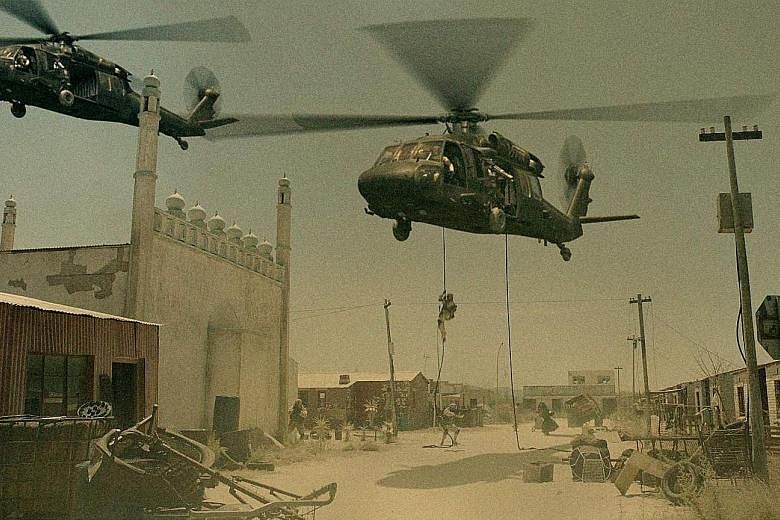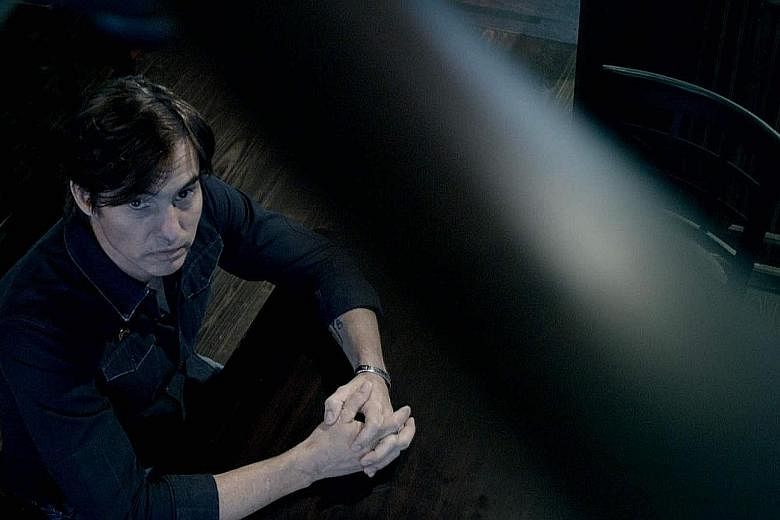Most people in the late 1990s had an inkling that the United States military, backed by United Nations forces, had been in a fight in Somalia.
But it took Ridley Scott's Oscar-winning Black Hawk Down (2001) to burn into public consciousness the ferocity and desperation of the ground battle that took place after two American helicopters were shot down over Mogadishu, the capital city.
Two former United States Army Rangers, Randy Ramaglia and Keni Thomas spoke to The Straits Times from Washington D.C. on the telephone. Along with former Black Hawk pilot Mike Durant, they participated in No Man Left Behind, a new six-episode documentary series from National Geographic Channel. They are featured in the premiere episode, The Real Black Hawk Down, which airs tomorrow.
In October 1993, Ramaglia and Thomas were part of the force sent into Mogadishu to seize militia leaders, only to meet unexpectedly strong resistance from local fighters.
After Durant's helicopter was downed, he was captured and held for 11 days.
Ramaglia put into context why the helicopters were placed in vulnerable positions above streets thronged with militiamen armed with rocket propelled grenades, or RPGs.
"In the first five battles or operations that we performed, there were no RPGs shot. On that day, there were like 120 RPGs they counted," says Ramaglia, now a firefighter in Maryland. Once the Somalis learnt how effective the RPGs were, they put that knowledge to use immediately, he says.
The downing of the two helicopters would trigger the rescue operation for the crew. It would lead to vicious street-by-street exchanges of fire between the American forces and the militiamen.
Eighteen Americans would be killed and 73 injured, including Ramaglia, who was shot while evacuating the city on foot.
"No man left behind" is an instinctive credo for members of the US armed forces; implying that one must be prepared to lay down one's life to save others. For many, especially non-Americans, the notion that many should be put at risk for the sake of a few is a calculus that does not make sense.
Thomas says that as a Ranger, he had to recite a creed, one that includes the phrase "I will never leave a fallen comrade to fall into the hands of the enemy".
"The point of saying a creed every day is when you say something every day, you begin to believe it. When you believe something, then you start to live it and it just becomes part of who you are," says Thomas, who is now a musician and inspirational speaker. He was also a consultant during the filming of Black Hawk Down.
"It's only about each other. It's only about taking care of each other, bringing each other home. So, it really isn't an option. It's interesting that people still ask that question," he says.
Thomas goes on to describe the contributions of the Malaysian peacekeepers, who drove the vehicles that helped evacuate the Americans: After the trucks were ambushed, the convoy could have turned around and abandoned the Americans, but instead, they chose to drive on, into the gunfire.
"Those guys soldiered up and basically what they all said to each other was, 'We're soldiers, these are people in trouble and it doesn't matter if they are Malaysians or Americans.' And they pushed on."
•No Man Left Behind: The Real Black Hawk Down airs on National Geographic Channel (StarHub TV Channel 411, Singtel TV Channel 201) tomorrow at 10pm.



